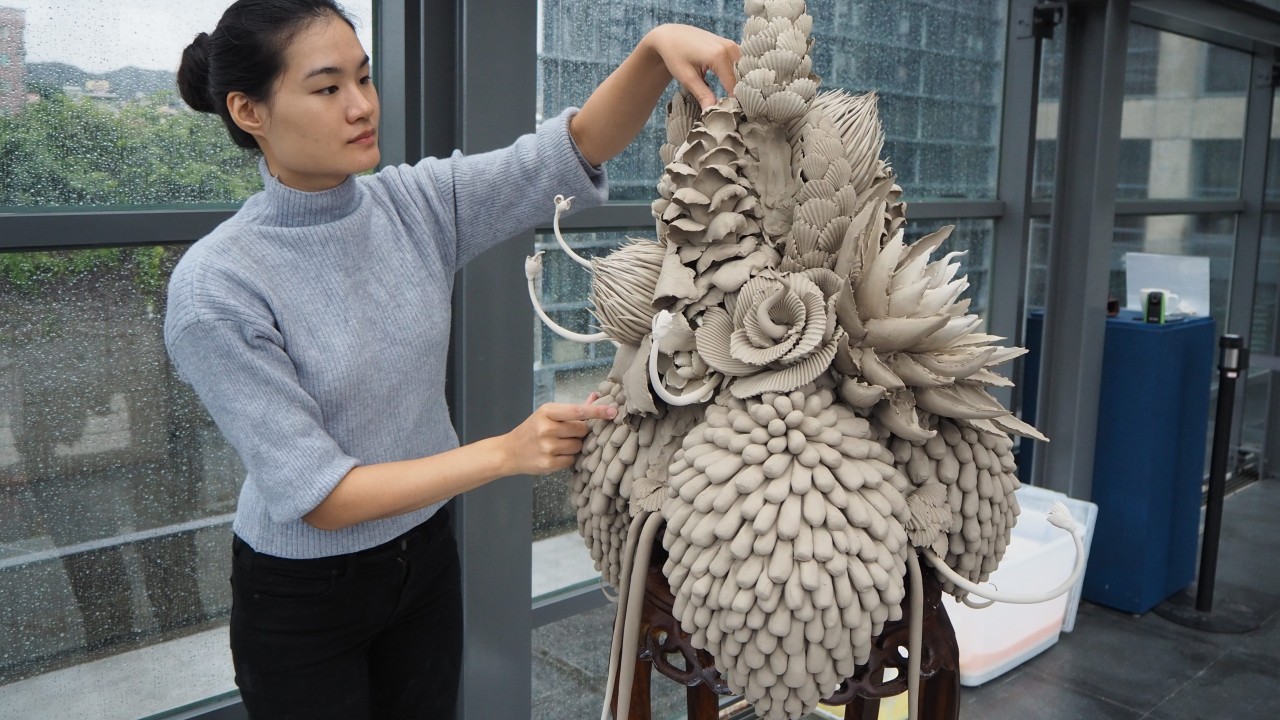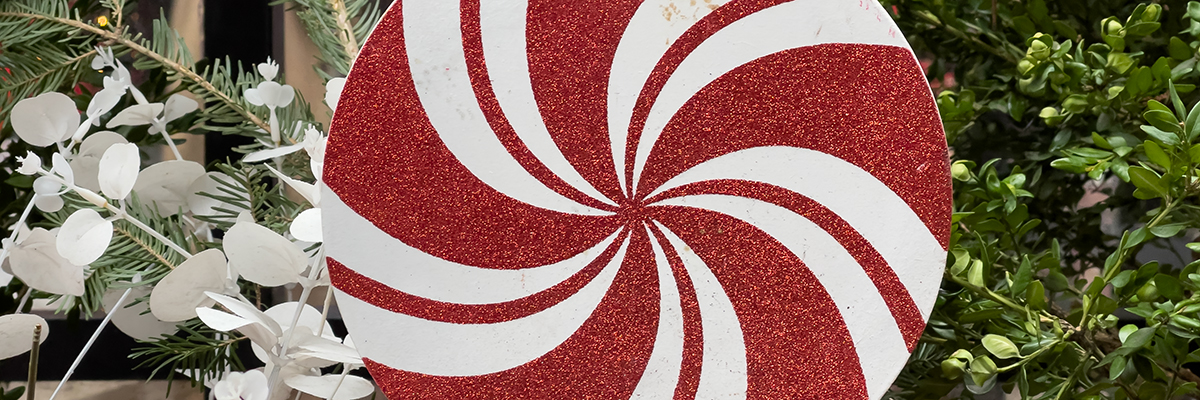Flower Tree
2008 - Sculpture (Sculpture)
Choi Jeong-Hwa
The application of bright colors and kitsch materials in Flower Tree manifests a playful comment on the influence of popular culture and urban lifestyle. And though his works share a similar sensibility to Claes Oldenburg’s oversized sculptures from everyday objects, Choi draws from his immediate surroundings and life experience. Public sculptures with a flower theme are often used to decorate the rapidly urbanized cities in Asia, which are constructed with concrete and steel materials. Ironically, these public sculptures are usually also superficial and made from the same unnatural materials. Thus, while seeming to be a celebration of nature’s beauty and the need for imagination when living in an environment with a diminishing natural aesthetic, Flower Tree embodies the paradox of modern life.
Using a broad range of media and materials including video, moulded plastic, inflatable fabrics, shopping trolleys, real and fake food, lights, wires, and kitsch Korean artifacts, Choi Jeong-Hwa’s practice blurs the boundaries between art, graphic design, industrial design, and architecture. Along with artists such as Bahc Yiso, Beom Kim, and Lee Bul, Choi was part of a generation whose unique and varied practices gave rise to Seoul’s burgeoning art scene in the 1990s. Trained in Korea during a period of rapid modernization and economic growth, Choi’s work acknowledges and internalizes the processes of consumption and the distribution of goods and has resulted in his being recognized as the leader of Korea’s pop art movement. Often infusing his works with a hint of humor, Choi creates monumental installation with everyday objects. His works also touch on issues of accessibility in art and contemporary culture, concepts of individual authorship and originality in art, and they comment on the privileged environment of art institutions and the prized status of artworks amidst a consumer-frenzied world.
Colors:
Related works featuring themes of: » Architecture in Art, » Art That Plays With Scale, » Assemblage, » Consumerism, » Contemporary Participation, » Korean
» see more

© » KADIST
Bjorn Copeland
2009Sign #1 , Sign #2 , Sign #3 were included in “Found Object Assembly”, Copeland’s 2009 solo show at Jack Hanley Gallery, San Francisco...

© » KADIST
Minouk Lim
2012The Possibility of the Half by Minouk Lim is a two-channel video projection that begins with a mirror image of a weeping woman kneeling on the ground...

© » KADIST
Haegue Yang
2010In addition to Yang’s signature drying rack and light bulbs, Office Voodoo includes various office supplies like CDs, paper clips, headphones, a computer mouse, a stamp, a hole puncher, a mobile phone charger...
Other related works, blended automatically
» see more

© » KADIST
Bjorn Copeland
2009Sign #1 , Sign #2 , Sign #3 were included in “Found Object Assembly”, Copeland’s 2009 solo show at Jack Hanley Gallery, San Francisco...

© » KADIST
Minouk Lim
2012The Possibility of the Half by Minouk Lim is a two-channel video projection that begins with a mirror image of a weeping woman kneeling on the ground...

© » KADIST
Wimo Ambala Bayang
2011Composed of four images, the series Sleeping Elephant in the Axis of Yogyakarta (2011) explores the artist’s observation of how Javanese mythology and cosmology have marked the geography of Yogyakarta, the cultural centre of Indonesia...

© » KADIST
Mike Kelley
1996Towhead n’Ganga, enclosed in darkness, lorded over by the sexualized folded high priestless form reflects many of Kelley’s works, in both its compositional and semantic qualities...
Related works sharing similar palette
» see more

© » WHITEHOT
Miami Art Week Fairs (Other Than Art Basel) You Should Know advertise donate post your art opening recent articles cities contact about article index podcast main December 2023 "The Best Art In The World" "The Best Art In The World" December 2023 Miami Art Week Fairs (Other Than Art Basel) You Should Know Ki Smith and Sono Kuwayama...

© » KADIST
Lotus Laurie Kang
2022Scaffold by Lotus Laurie Kang features a seemingly disjointed amalgamation of materials between flat fabrics and lumps of aluminum...

© » KADIST
Collier Schorr
1999Collier Schorr’s prints upend conventions of portrait photography by challenging what it means to “document” a subject...
Related works found in the same semantic group
» see more

© » KADIST
Martin Boyce
2003In the installation Our Love is like the Flowers, the Rain, the Sea and the Hours, Martin Boyce uses common elements from public gardens – trees, benches, trashbins– in a game which describes at once a social space and an abstract dream space...

© » SOUTH CHINA MORNING POST
Why these ephemeral clay artworks by ceramicist Ruth Ju-shih Li will crumble in front of your eyes | South China Morning Post Advertisement Advertisement Art + FOLLOW Get more with my NEWS A personalised news feed of stories that matter to you Learn more Taiwanese-Australian ceramicist Ruth Ju-shih Li installs an ephemeral clay artwork at the New Taipei City Yingge Ceramics Museum, in Taiwan, in 2019...

© » LENS CULTURE
Unlike flowers, she won’t come back with spring - Photographs by Francesco Pennacchio | Essay by Magali Duzant | LensCulture Feature Unlike flowers, she won’t come back with spring Through archival imagery and his own pictures, Francesco Pennacchio constructs a photographic bridge to the memory of his mother; a voyage that is equal parts tender and playful...



